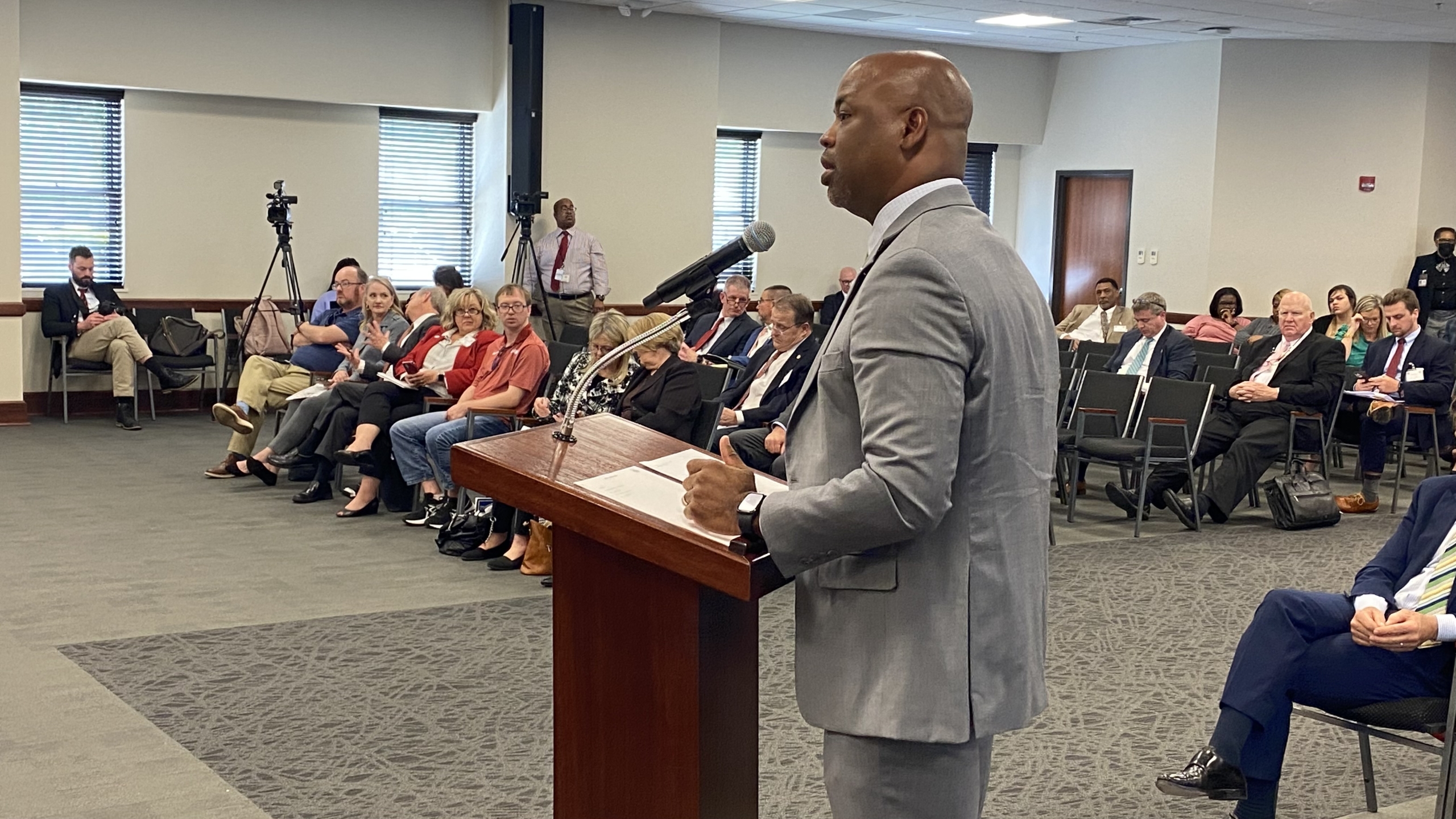|
Getting your Trinity Audio player ready...
|
The way the Alabama Board of Pardons and Paroles operates – seemingly on whims or in response to public pressure – should scare the average citizen and frustrate state lawmakers into action, Rep. Chris England said in a recent podcast interview.
England, who has been a consistent critic of the ABPP and its seeming indifference to guidelines and laws governing the release of incarcerated people in the state, joined the “Alabama Politics This Week” podcast, in an episode released Friday, to discuss bringing back his bill that would create an oversight board for ABPP. A similar bill failed to pass in the 2024 session.
“We create oversight of government agencies all the time – that’s one thing we love to do,” England said. “Imagine having a conversation with a conservative Republican and telling them that there’s an element of government that doesn’t have any oversight at all. They’d go crazy. Except in this one area.”
That one area has been Alabama’s Department of Corrections overall, and specifically, in this instance, the ABPP. England and other lawmakers and activists have pointed out the board’s repeated failures to follow established guidelines that determine whether certain prisoners in Alabama’s system should receive parole.
For years, the refusal to follow those guidelines resulted in one of the lowest parole rates in the country. It also resulted in overcrowded prisons, increased violence, less adherence to rules within the prisons and frustration from prisoners, their families and even those who worked in the prisons.
The problem, put simply, was that the board, in response to backlash from the release of some prisoners who later committed crimes, essentially decided that paroles would be extremely rare. In doing so, the ABPP ignored rules and regulations adopted by the state – and by the board itself – for determining whether an inmate should receive parole. No longer did score sheets that awarded points for completing programs and classes, holding a job or staying out of trouble matter. Inmates with near perfect scores, and some who had parole recommendations from the very guards who watched them, were denied.
England said those denials had a detrimental effect on the entire system.
“People look at me like, ‘you just want to let everybody out of prison.’ No, I fully understand that there’s some people that need to be incarcerated,” he said. “I get it. But in order for me to guarantee public safety, I have to have a system that is reliable and repeatable so I know that this system is actually assessing people to know if you can safely be released or not.”
That obviously wasn’t happening for several years, England said. But as more and more stories started to flood onto the screens of average Alabamians, and more and more people started to learn of the egregious behavior of the ABPP, public pressure started to mount. Over the course of the past year, that pressure has resulted in ABPP drastically upping the parole rate.
In 2022, Alabama released just 8 percent of the inmates eligible for parole. Currently, that rate is up to 21 percent and climbing.
While he’s happy to see the increase, England said that he can’t call it a success because he doesn’t know if those who have been granted parole should have received it, or if it was simply a reactionary decision to the mounting public pressure.
“I’m not upset about the fact that the parole rates have increased,” England said. “But the reason they’ve increased is because of public pressure. That’s crazy.”
And that, he says, is evidence that we desperately need oversight to ensure that the board is following the guidelines in place.
“We don’t know if the person that’s getting out is being properly assessed based upon methodology that we paid for,” England said. “That’s what the guidelines are for. We have guidelines so we know that you’ve done something that makes sense and it produces a result. Because when it doesn’t work, we know that the guidelines are broken. We need to fix the guidelines. But when it does work, we need to continue doing what’s working.
“That’s why oversight in this situation is necessary. You would think that I’m asking for something controversial but it’s not. It doesn’t take away their ability to make decisions. It just requires them to show their work. So again we can understand what you’re doing so if there’s a problem we can fix it. If there’s not, we can help you do it better.”
You can listen to England’s full interview, which includes a discussion of two more pieces of legislation, on the APTW website or by subscribing to the podcast on any of the usual podcast platforms.















































